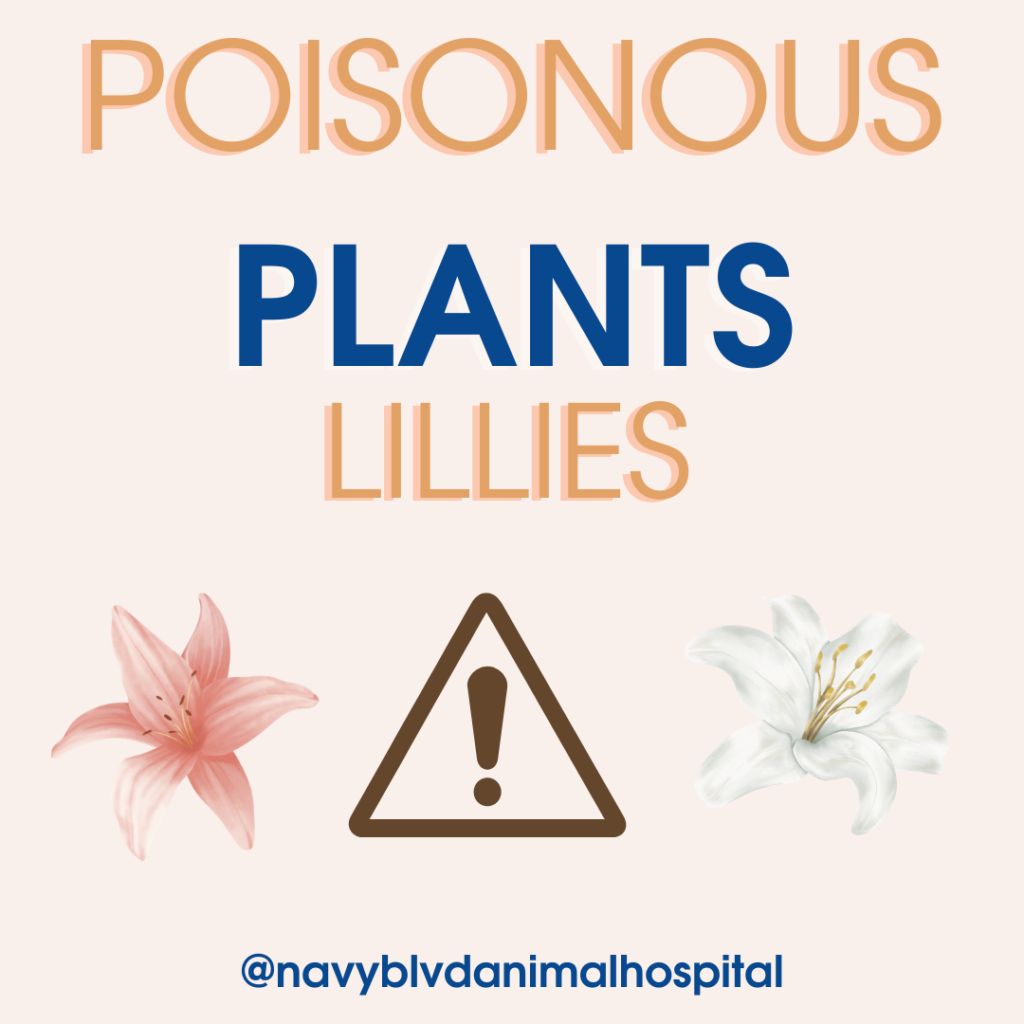Springtime brings with it a burst of life and color, but amidst the beauty of blooming flowers and lush greenery, there lurks a potential danger and we want to inform you how to protect your pets. As a responsible pet owner, it’s crucial to be aware of the poisonous plants that are commonly found in Pensacola and may also be present in your home. At Navy Blvd Animal Hospital, we prioritize the health and safety of your furry companions. This is why we want to educate you on this important topic.
Protect Your Pets from the following:
- Sago Palm: While visually striking, the Sago Palm is highly toxic to both dogs and cats. Ingestion of any part of this plant can lead to severe liver failure and, in some cases, prove fatal. Every single part of this plant is toxic, not only to pets but humans. We highly recommend staying far away from Sago Palms as pet owners.



- Azaleas: These popular ornamental shrubs may add a pop of color to your garden, but they contain toxins that can cause vomiting, diarrhea, and even cardiac issues in pets.



- Lilies: While lilies are a common sight in many homes during the spring, they are extremely toxic to cats, causing kidney failure even in small amounts. Dog owners should also exercise caution, as certain types of lilies can cause gastrointestinal upset.



- Oleander: With its attractive blooms and evergreen foliage, Oleander may seem harmless. But it contains cardiac glycosides that can be deadly to pets if ingested.



- Grapes: While not a plant commonly found in gardens, grapes and raisins can be extremely toxic to dogs, causing kidney failure. Even a small amount can be dangerous, so it’s essential to keep grapes and raisins out of reach of pets at all times. If ingestion occurs, seek veterinary attention immediately.



If you suspect that your pet has come into contact with any of these poisonous plants, it’s essential to act quickly.
What to Do If you Believe your Pet is Poisoned
- Seek Veterinary Attention: Contact Navy Blvd Animal Hospital immediately or your nearest emergency veterinary clinic. Time is of the essence when dealing with plant poisoning, so don’t delay in seeking professional help.
- Provide Information: If possible, identify the plant your pet has interacted with and inform the veterinarian. This will help them determine the appropriate course of treatment more effectively.
- Monitor Symptoms: Keep a close eye on your pet for any signs of distress. This includes vomiting, diarrhea, lethargy, difficulty breathing, or seizures. Be prepared to provide this information to the veterinarian.
- Avoid Home Remedies: Refrain from inducing vomiting or administering any home remedies without consulting a veterinarian first, as these actions can sometimes do more harm than good.
By familiarizing yourself with the poisonous plants that are prevalent in Pensacola and taking prompt action if your pet encounters them, you can help ensure their safety and well-being this spring. At Navy Blvd Animal Hospital, we’re here to support you every step of the way. We take responsibility for keeping your furry friends happy and healthy.
